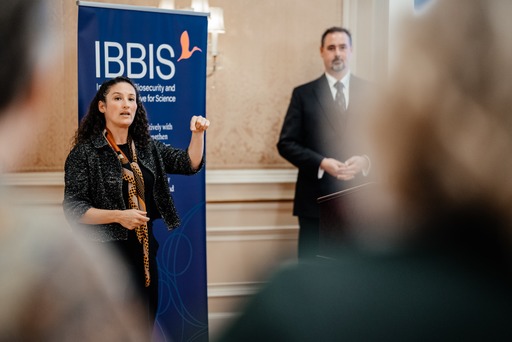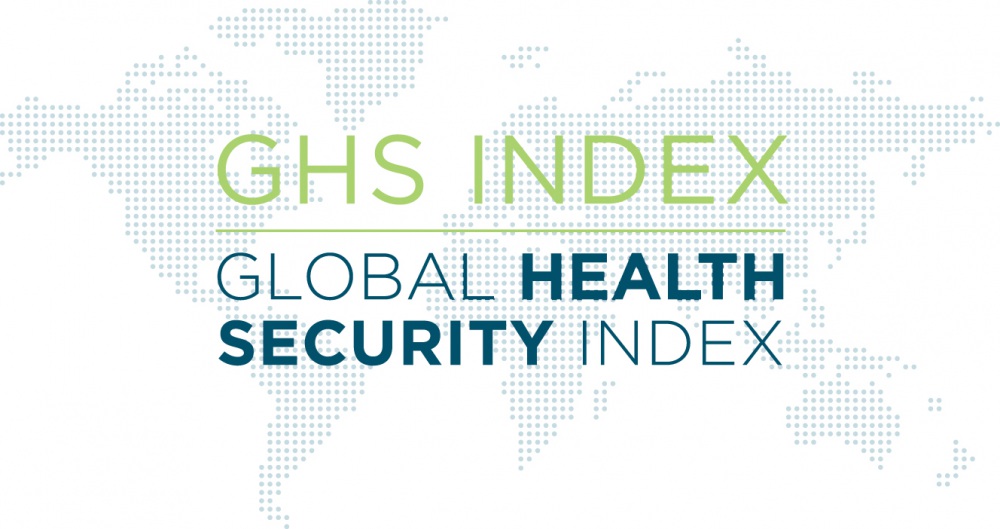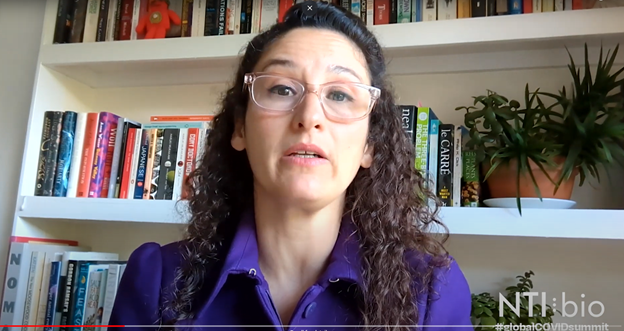
NTI | bio experts address G7 Global Partnership Working Group in Berlin
NTI experts briefed government representatives at a G7 working group meeting in Berlin.
WASHINGTON, DC, October 24, 2019 — National
health security is fundamentally weak around the world, and no country is fully
prepared to handle an epidemic or pandemic, according to the first
comprehensive assessment and benchmarking of health security and related
capabilities across 195 countries.
A joint
project by the Nuclear Threat Initiative (NTI) and the Johns Hopkins Center for
Health Security, with research by The Economist Intelligence Unit (EIU), the inaugural
Global Health Security Index released today finds severe weaknesses in countries’
abilities to prevent, detect, and respond to significant disease outbreaks. The
average overall 2019 GHS Index score is 40.2 out of a possible score of 100. Even
among the 60 high-income countries assessed, the average score is 51.9.
“The results are alarming:
All countries—at all income levels—have major gaps in their capabilities, and
they aren’t sufficiently investing in biological preparedness,” said NTI
Co-Chair and CEO Ernest J. Moniz. “The bottom line is that global biological
risks are growing—in many cases faster than health systems, security, science,
and governments can keep up. We need to
ensure that all countries are prepared to respond to these risks.”
Center for Health Security
Director Tom Inglesby said the GHS Index, developed with guidance from an
International Panel of Experts from 13 countries, can be used by health and
finance ministers, international organizations, philanthropists, funders, and academics.
“Whether naturally occurring, intentional, or accidental, outbreaks in any
country pose risks to global health, international security, and the worldwide
economy,” Inglesby said. “We hope this index will help countries identify gaps,
build preparedness and best practices, and track progress over time.”
“This index is a powerful tool for citizens and civil society
to hold their government officials accountable for health preparedness,” said
NTI Co-Chair Sam Nunn.
The GHS Index assesses
countries across six categories, 34 indicators, and 140 questions deliberately
using only public information. The index benchmarks health security in the
context of other factors critical to fighting outbreaks, such as political and
security risks, the broader health system, and country adherence to global
norms.
In addition to its overall
finding that national health security is fundamentally weak around the world
and no country is fully prepared for epidemics and pandemics, the GHS Index finds:
Countries
are not prepared for a globally catastrophic biological event, including those
that could be caused by the international spread of a new or emerging pathogen
or by the deliberate or accidental release of a dangerous or engineered agent
or organism
The
available evidence suggests that most countries have not tested important
health security capacities or shown that they would be functional in a crisis.
Most
countries have not allocated funding from national budgets to fill preparedness
gaps.
More
than half of countries face major political and security risks that could
undermine national capability to counter biological threats.
Only
23% score in the top tier for political system and government effectiveness,
representing approximately 14% of the global population.
Most
countries lack foundational health systems capacities vital for epidemic and
pandemic response.
Coordination
and training are inadequate among veterinary, wildlife, and public health
professionals and policymakers.
Improving
country compliance with international health and security norms is essential.
The GHS Index findings and
recommendations for how to address significant gaps in global health security come
amid an ongoing Ebola outbreak in the Democratic Republic of Congo and five
years after the United Nations (UN) Security Council met in crisis over the
Ebola epidemic in West Africa.
The report
describes that despite entry into force of revised International Health
Regulations more than 10 years ago, decision makers only sporadically focus on
health security and remain caught in a cycle of perpetual surprise when
outbreaks occur in unanticipated locations. At a time when risks are magnified
by a rapidly changing and interconnected world—and when technology advances make
it easier to create and engineer pathogens—knowing the risks is clearly not
enough. Political will is needed to protect people from the consequence of
epidemics, to take action to save lives, and to build a safer and more secure
world.
A core principal of the
GHS Index is that health security is a collective responsibility. The GHS Index
offers 33 recommendations for individual countries and for the international
community. Recommendations include:
The GHS Index was
developed over a two-and-a-half-year period. Key steps included an initial
pilot project to test the framework; reviews by an International Panel of
Experts that includes 21 experts from 13 countries; a year-long data collection
and validation process by 110 EIU researchers; and opportunities for governments
to validate data.
Visit www.ghsindex.org to explore the GHS Index data, download the full
report and data model, view profiles for each country, use the score simulator,
review the full methodology, watch the GHS Index video, and more.
About the Nuclear Threat Initiative
The Nuclear
Threat Initiative (NTI) works to protect our lives, environment, and quality of
life now and for future generations. NTI works to prevent catastrophic attacks
with weapons of mass destruction and disruption—nuclear, biological,
radiological, chemical, and cyber. Learn more at www.nti.org
About the Johns Hopkins Center for Health Security
The Johns
Hopkins Center for Health Security works to protect people’s health from
epidemics and disasters and ensure that communities are resilient to major
challenges. The Center examines how scientific and technological innovations
can strengthen health security. It studies the policies, organizations,
systems, and tools to prevent and respond to outbreaks and public health
crises. Learn more at www.centerforhealthsecurity.org
About The Economist Intelligence Unit
The
Economist Intelligence Unit is the research arm of The Economist Group,
publisher of The Economist. As the
world’s leading provider of country intelligence, we help governments,
institutions and businesses by providing timely, reliable and impartial
analysis of economic and development strategies. Through a global network of
more than 900 analysts and contributors, The EIU continuously assesses and
forecasts political, economic and business conditions in more than 200
countries. Learn more at www.eiu.com.
CONTACTS:
Cathy Gwin
(NTI), 202-454-7706, [email protected]
Jackie Fox
(Center for Health Security), 443-510-0022, [email protected]
Sign up for our newsletter to get the latest on nuclear and biological threats.
NTI experts briefed government representatives at a G7 working group meeting in Berlin.
NTI joined governments and organizations from around the world for the 2nd Global COVID-19 Summit on May 12, 2022 and committed to provide $35,000 to the pandemic preparedness and global health security financial intermediary fund.
NTI and partners hosted virutal side events on using the GHS Index as a guide for responding to COVID-19 and on strengthening biosafety and biosecurity.


